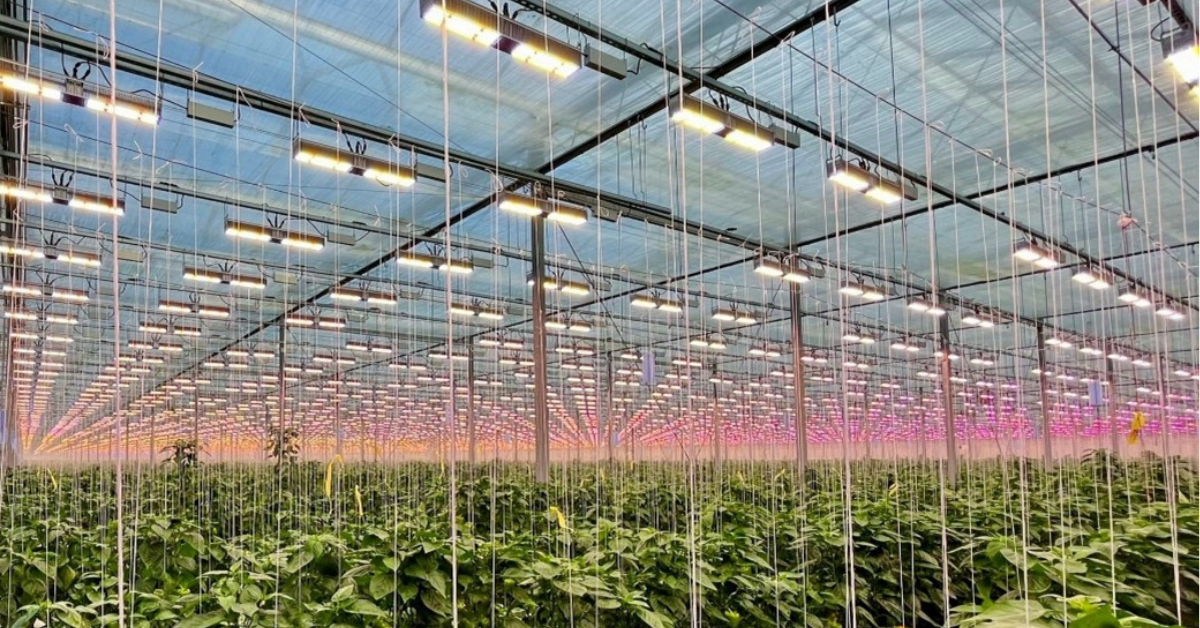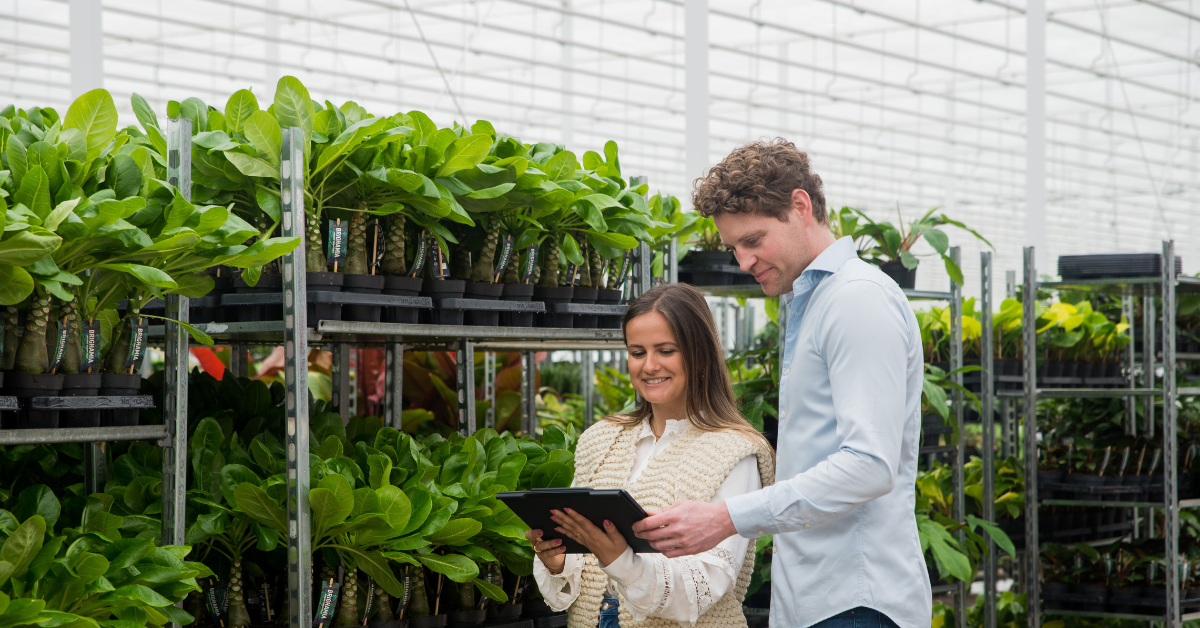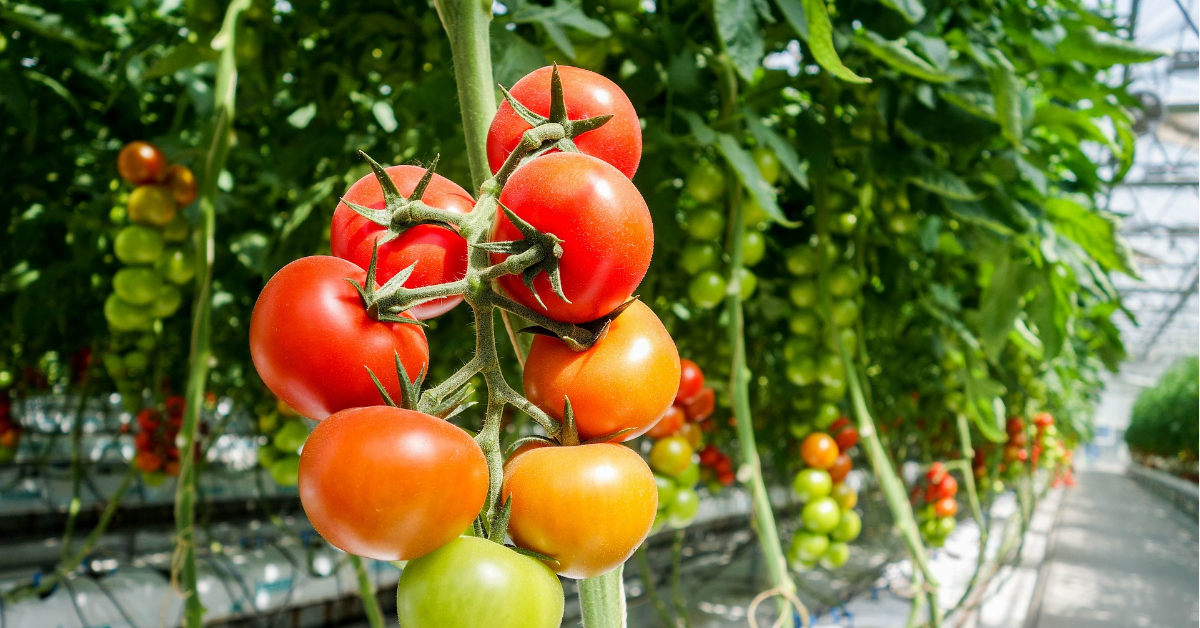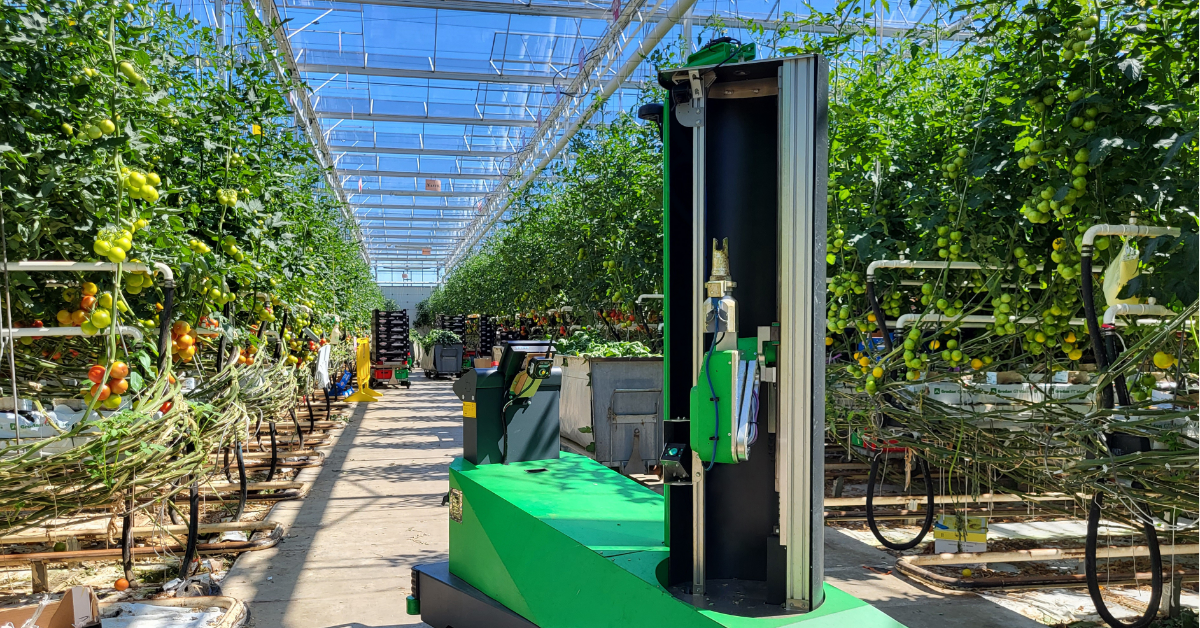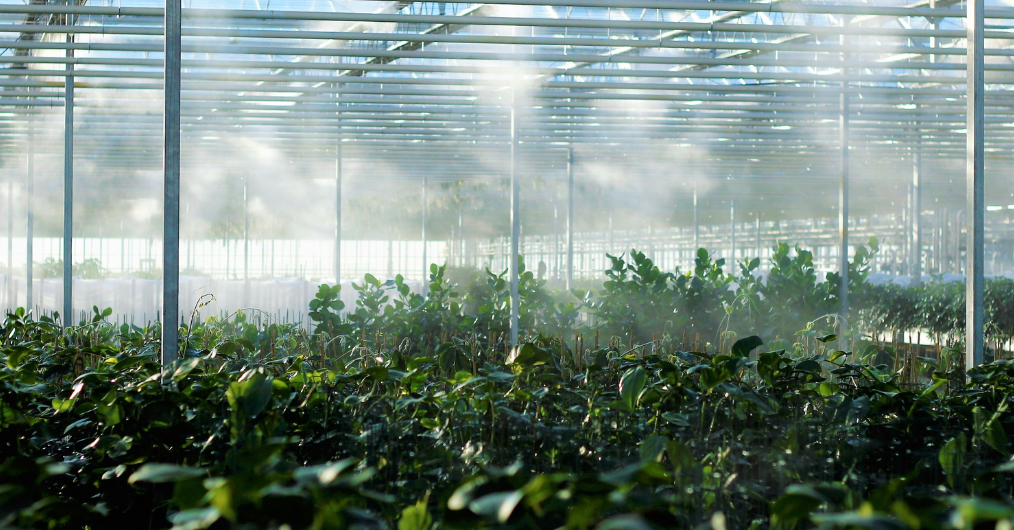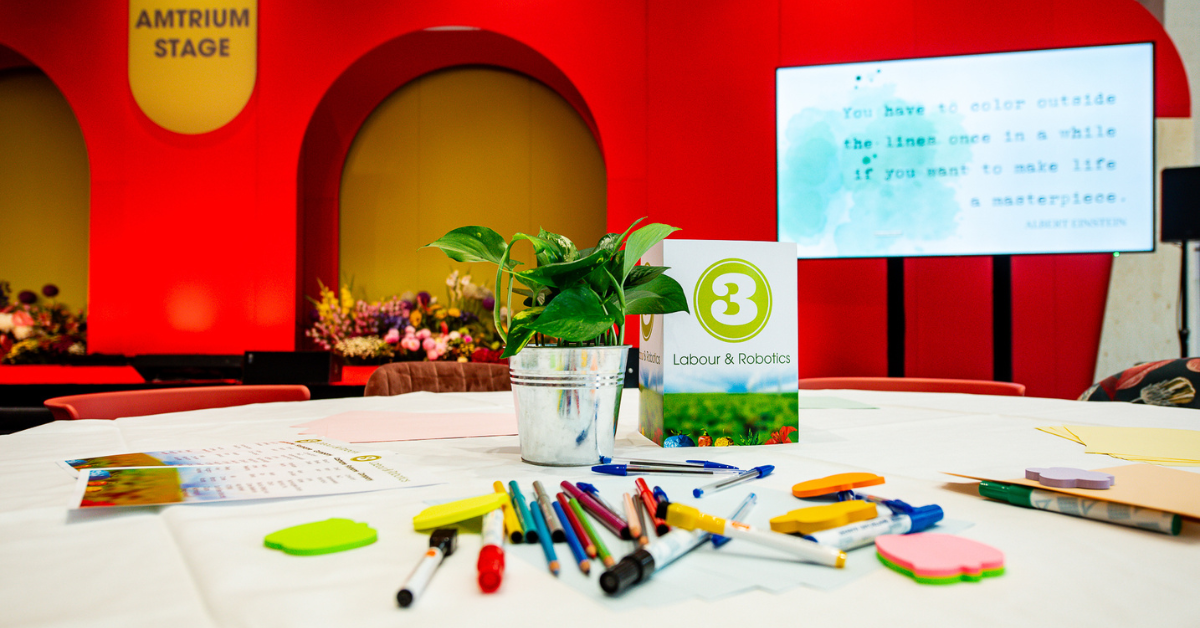The cannabis industry is still one of the fastest growing industries in the world. Nevertheless, steps can still be taken in further professionalization, according to Chris Day, CEO of GPS Global, and Sonny Moerenhout, Managing Partner at Cultivators. Legislation and financing are two major obstacles that still have to be overcome.
Much has been said and written about the cannabis sector in recent years. In North America in particular, the rise of cannabis producers seemed unstoppable. But what is the current situation in North America and Europe? Is cannabis still booming? What developments are taking place within the sector and what can we expect in the coming years? GreenTech spoke with two specialists in this field.
Federal barriers to entry
''North America is still doing well in terms of expanding cannabis and hemp markets, in spite of ongoing challenges with legalization in the United States'', Chris Day says. Day is CEO of GPS Global, a full-service global strategy firm, specializing in cannabis, hemp, and emerging markets. Through its international ecosystem of businesses, policymakers, and experts, GPS Global collaborates and consults with clients on reliable, sustainable, and dependable outcomes. “It's worth noting that the cannabis industry is one of the fastest growing industries in the United States in terms of job growth with the federal barriers to entry. Individual states continue to join the state-by-state system established over the next decade. Meanwhile, Canada has continued to see the maturation process that will lead to further mergers and acquisitions activity, as companies look to optimize production, staff, and market efficiencies. Mexico's ongoing push towards full legalization has been significantly progressed. First, by encouragement from the Supreme Court, and second, through an apparent willingness by a large portion of the legislature to extend the current medicinal program into a full adult use legalization model.”
With the ever-expanding markets in both cannabis and hemp, Chris Day sees more resilient supply chains, the filling of technology gaps for processing and formulation, and a much broader variety of products. “Everything from infused beverages to textiles, flower varieties, edibles, oils, and API (Active Pharmaceutical Ingredient) for the pharmaceutical industry, has expanded today's markets and short-term projections by billions of dollars.”
Eyes on the Netherlands
Numerous developments are also underway in Europe, says Sonny Moerenhout. Moerenhout is Managing Partner at Cultivators. The company works with growers, suppliers, investors, and other stakeholders in their mission of 'growing business'. Each of these groups have different interests, needs and requirements. Cultivators cooperates with partners, links professionals, and brings expertise through its services focused on professional cultivation. “Everyone is talking about the possible legalization of recreational cannabis in Germany, but that will take a while. They first look at what is happening in the Netherlands.” An experiment with regulated cannabis production was started in the Netherlands, but this project is making slow progress, according to Moerenhout. “The experiment has some elements from a complicated soap opera: there is much said and gossip. In addition, government decision-making is taking its time and because the details and continuation of the experiment is not clear, investors find it difficult to assess the balance between opportunity and risk. This combination makes it difficult for the ten participating parties to proceed quickly, although they are very eager to make it a success. In addition, municipalities, local residents and other stakeholders in the places where these companies want to establish themselves are sometimes hesitant, which is impacting the progress of the new facilities. Nevertheless, concrete steps are being taken by most parties and it is likely that more news will come out in the coming months. A number of government agencies, that will be given a role in the supervision framework and enforcement of the experiment, are in any case already working energetically.”
The cultivation of medicinal cannabis is simultaneously being legalized in France. Five international companies are in the race to supply cannabis for medicinal purposes. In addition, medical cannabis cultivation programs are being implemented in several other European countries, including Switzerland. With all the developments and new facilities, it is inevitable that there will be another shakeout in Denmark and Portugal, during which it will become clear which parties are actually allowed to grow with a license and become a success.” Moerenhout also identifies developments in other parts of the world. “In Asia, things are now starting to open up, with the movements in Thailand in particular causing a stir, given the very strict regulations that the country previously applied in relation to cannabis. South Africa is also a country to watch out for, with a number of small growers under the banner of a larger party now growing cannabis for the European market.”
Interesting growth models
It’s clear that things kept going in the past five years. “In the cannabis industry, five years is a lifetime”, says Chris Day. “At our firm, Gateway Proven Strategies and via our members who are part of the Global Cannabis Network Collective, we've been around since the inception of the legalization movement in Colorado, the opening of Uruguay, the pilot programs in Europe and the ongoing maturation of the EU as a whole. We've seen trade partnerships between the EU and nations like Australia facilitate opportunities for multi-national companies looking to expand market share across continents, and continue to watch movements in Africa and key markets in Asia as well. There are very interesting growth models taking place, specifically in medicinal markets around hemp derivatives in India. What we know is that while there are unique aspects of all the various markets, there are also predictable trends that can be witnessed in the vast majority of them around legalization, adaptation, compliance, product development and delivery models, progressing from very hyper controlled and overregulated processes to more viable long-term scenarios. There is not a single market in the world right now that is ‘finished’ in its development or that can be considered mature.”
Day says he would be remiss if he didn't also point out the rapidly increasing discussions and opportunities around industrial hemp. “While there are still some supply chain issues, especially around processing at large scale in most parts of the world, the opportunity for industrial hemp to again become a mainstay product, is substantive. We've seen dramatic shifts in attitude towards solving these challenges that are just now beginning to bear rewards for early entrants.”
Legitimacy for doctors
According to Chris Day, the largest change within the industry is the breadth of ailments that have been scientifically identified as benefitting from the various cannabinoids and other elements of the cannabis plant. “These treatments have progressed far beyond theoretical, with studies occurring around the world. This further validation of cannabis and cannabis derived products has effectively provided the needed legitimacy for doctors in most federally legalized markets to begin prescribing cannabis again. Some markets have even progressed so far as to include it on insurance reimbursement schedules. There is no longer a valid argument to whether or not cannabis is beneficial as a well-regulated medicinal product, the only debate in that sense is the willingness of governments to accept the scientific research and progress into a structure that fits their particular nation. Any position counter to that is simply willful ignorance. In looking at the progress of change in the space, the velocity of acceptance has grown exponentially.”
According to Sonny Moerenhout, however, many parties are still starting with too limited cultivation knowledge and expertise. “Within the medicinal sector, we always talk about estimated market volumes, sales opportunities, and all legal challenges. The cultivation itself is still too often forgotten and that is why it is so important that you have events such as GreenTech, where the focus is on cultivation and technologies. To build the right cultivation facilities, you need to know who will deliver your product and what exactly you will deliver, so that you have a set of requirements on which you can develop the design. That design must serve the plant and the realization of a high-quality cannabis product. It is positive to see that stabilization is taking place around the quality requirements of cannabis, in which the GACP and GMP guidelines are leading.”
Stigma is dissolving
The biggest challenges at the moment lie in the further roll-out of clear legislation worldwide that should make the use and cultivation of medicinal cannabis possible, says Moerenhout. “But all kinds of developments are also taking place in terms of genetics and ingredients, and more and more studies are being conducted into new cannabinoids in addition to THC and CBD and into combination with terpenes. The stigma surrounding cannabis seems to be dissolving more and more.”
When it comes to North America, Chris Day also points out the importance of a broader access to global financial markets and the destruction of the United States' chokehold on traditional banking methods for cannabis companies. “That has had a detrimental effect on the global marketplace and has created a strain on the ability of the market overall to grow in predictable ways at times. That being said, other regions of the world, like Europe, Australia, Canada, and South America, have ensured that viable resources can be identified even with more politically driven restrictions being placed on certain geographic regions.”
Research & Development
Cultivators, the company of Sonny Moerenhout, is currently working on all kinds of projects in the Netherlands and abroad. “Not only in the field of cannabis, but also for the cultivation of hydro lettuce and herbs. Both rapidly growing markets, and these are two crops that share similarities with cannabis, mainly because both industries are investor-driven, and cultivation facilities are vertically integrated companies. This means that propagation, cultivation, and post-harvest often all fall within one company, driven by legislation and/or quality criteria. For other horticultural crops, such as tomatoes and pot plants, these are often separate specialized companies. In addition, as Cultivators we focus on Research & Development, together with other horticultural suppliers, and we are expanding our team to meet the growing demand for cultivation knowledge in combination with a business eye. We help companies and investors to make decisions for or in their cultivation facility and want to be a partner for the sector in that area.”
One chance to do this
The team at GPS Global has been involved at every level of government engagement, and business development in the modern era of the cannabis industry across every continent, says Day. “We work with our clients to discover latent business opportunities, deliver the necessary plans and resources to execute against those opportunities, support in building them and ultimately, expand operations. We work with plant touching and businesses in adjacent industries to really understand domestic and international landscapes through our subject matter experts located around the globe. We also provide interested executives and senior leaders who are working to expand their companies, optimize deal flow, and network access to the Global Cannabis Network Collective (GCNC). The GCN helps to streamline international communications for our member companies. As CEO of both GPS and the GCNC, I find myself in a very unique and special place, connecting the best experts in cannabis with businesses really driving the conversation, expanding access for patients, and educating adult use markets. We are in an era globally of high velocity change and cannabis is part of that. It's a very exciting time to be looking for the best ways to expand a responsible, sustainable, equitable and profitable industry. We get one chance to do this well, and it's a challenge me and my team embrace every day.”
